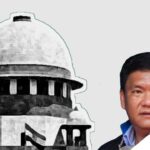Section 242 CrPC: Evidence for Prosecution – Code of Criminal Procedure
1. State the code
Section 242 of the Code of Criminal Procedure (CrPC) deals with the evidence required for the prosecution in a criminal case.
2. Explain it
Section 242 states that:
- The prosecution must prove every fact essential to constitute the offence charged against the accused.
- The burden of proving such facts lies on the prosecution.
- The accused is presumed to be innocent until proven guilty by the prosecution.
This means that the prosecution has the responsibility of presenting sufficient evidence to convince the court beyond a reasonable doubt that the accused committed the crime. The accused is not required to prove their innocence.
3. Illustrate it
Consider a case where someone is charged with theft. The prosecution must prove the following facts:
- That the property in question was stolen.
- That the accused took the property without the owner’s consent.
- That the accused intended to permanently deprive the owner of the property.
The prosecution may present evidence such as eyewitness testimonies, CCTV footage, or fingerprints to support their case. If the prosecution fails to prove these facts beyond a reasonable doubt, the accused will be acquitted.
4. Common Questions and Answers
-
Q: Does the accused have to testify in their own defense?
A: No, the accused has the right to remain silent and does not have to testify against themselves. However, if the accused chooses to testify, their testimony can be used against them by the prosecution. -
Q: Can the prosecution rely on circumstantial evidence?
A: Yes, circumstantial evidence can be used to prove the guilt of the accused. However, the prosecution must establish a chain of circumstances that point conclusively to the guilt of the accused. -
Q: What happens if the prosecution fails to prove its case?
A: If the prosecution fails to prove its case beyond a reasonable doubt, the accused will be acquitted. This means that the accused will be declared not guilty and released from any charges.










